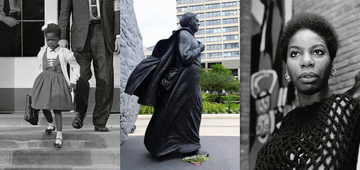- 10 April 2025
Thinking about how I joined the cleaning industry, it was a bit of a shock to realise it was 42 years ago this August! It really doesn’t feel that long ago, although my knees may disagree with that statement.
My first position in the cleaning industry was as a Trainee Housekeeper at the Piccadilly Hotel, London W1. This role came with day release to college, and I duly attended Westminster College to undertake my City and Guilds qualification in Accommodation Services. This qualification covered hotels, hospitals, and even private residences. So, as you can imagine we were quite a mixed bunch. But despite our differences, we were still a wholly female contingent – something that I’m happy to say has altered over the years.
Is the cleaning industry becoming more equal for women?
The cleaning industry has seen a high percentage of female cleaning operatives and generally male management. In decades past, the contract cleaning section of the industry was pretty much 98% female at the operative level and 98% male at the management level (figuratively speaking), which never seemed very fair but was a reflection of the care for either children or parents that women commonly take on and fit work around, as well as the requirement for the male members of the industry to have a “full time” role.
These percentages have changed slightly over the years, however, with the latest insight from the British Cleaning Council showing cleaning operative rates of 31% male to 69% female and management 62% male to 38% female (data from 2021).
It can clearly be seen that women are the backbone of our industry, and the roles they take in our industry have been far more positive over the last few years with many organisations in the cleaning and hygiene industry (OCS, MITIE, Sodexho, and Interserve) all having female “Heads of Cleaning” as well as several well-thought-of and experienced consultants carrying the flag for the female members of our industry.
The cleaning industry still appeals to those who have a carer’s role as well as a need to earn a living, as we work 24 hours a day, 7 days a week on some contracts, allowing for flexible working and flexible hours, with good routes for progression dependant on the direction candidates want to take. There is also a wide range of roles within our industry where women can excel. The auditors, inspectors, trainers, and compliance managers that are vital to a company’s or a contract’s success are just a few of these positions.
To any women looking at the cleaning industry I would say come on in, it’s provided me with a fabulous career, the opportunity to travel and some truly unique experiences. Not only that, but clean and hygienic environments are crucial to our health and there is a passion in the workforce in looking for new ways to go further in delivering protection to the public. I’m heartened to see that RSPH, alongside the rest of the public health sector, has come together to call for recognition for our vital roles as part of the wider public health workforce and for an inclusive workforce strategy which would include me and my thousands of colleagues.



